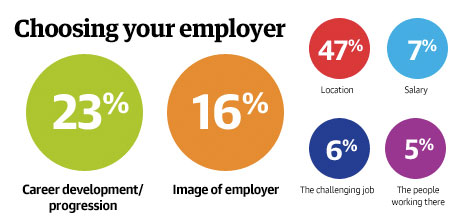In the past few years Ireland has solidified itself as a global hub for technology giants. With Google, Facebook and Microsoft just some of the big names in the tech industry to establish offices here, it is no wonder Ireland has almost 140,000 people working in the high tech sector already.
There is therefore no doubting the need to attract more and more tech talent to meet the employment demands of the plethora of international tech companies now in Ireland. Add to that the possibility of an influx of workers coming to Ireland in the wake of Brexit, and Irish employers need to understand how to manage and maintain an increase in tech talent.
Attracting tech talent is only the starting point. It’s getting your tech employees to stay that is the real challenge. There is little more frustrating to a company than having to say goodbye to its best tech workers.
So, here are three tips to help your organisation hold on to your best tech employees:
1. Find the Right Fit
It may sound like a no-brainer, but taking the time during the hiring process to find an employee that is the right fit for your company will pay dividends. An employee who clearly understands their role and shares the values of a company is less likely to want to jump ship.
To get this right, it is important for employers to be very clear on job descriptions for applicants. Employers should include as much information about a new position as possible and make sure you have a clear company ethos – employees need to know what they are signing up for! Getting a solid fit at this stage will undoubtedly improve the retention rate of your tech staff. As the CIO of Ascential, Sean Harley put it, “if you hire well, the best talent pool is the one you already have.”
2. Communicate, Engage and Support
While hiring gets tech talent through the door, continuous communication, engagement and support will help retain your tech workers. ‘Talking to techies’ may have a reputation for being a daunting task, but it is an essential part of a successful workplace. Do not make your tech staff feel like they are on the periphery of the team – this is likely to push them away.
The tech industry, according to a recent Fortune 500 study, has the highest turnover of any other industry. Supporting your tech staff, through including them in high-level meetings or offering flexible working hours for example, is one of the best ways to make sure they don’t think the grass is greener elsewhere.
3. Provide Learning Curves
While financial incentives or an increase in pay may seem like a logical way to retain staff, it should not be considered a silver bullet. Often tech workers appreciate being challenged and allowed to innovate. Don’t be afraid to up-skill tech employees. Trust in the people you have to perform new tasks rather than always harping back to the lengthy and costly hiring process. You should find this will stimulate the mind of a tech worker much more while increasing their productivity and satisfaction. This is a two-pronged solution – tech employees will value opportunities to be more creative when given more demanding responsibilities and employers should see an increase in talent retention.
Let’s make no bones about it – the need for tech employees is on the rise across all industries. As more and more business turn towards digital, the challenge for employers is managing what may be an entirely new department in their organisation. One of the best ways to do this in general is through continuity. Continuity requires talent retention. The quicker tech staff are recognised as an integral part of your organisation, and treated as such, the more efficient and effective they will be. So, be diligent in your hiring, keep your tech talent happy and do your utmost to keep them on board - after all, you don’t know what you’ve got till it’s gone.
For more helpful HR tips and advice, CLICK HERE to sign up to our newsletter.



 RSS Feed
RSS Feed